
Spotlight on Women's Health
Being a woman can be crucial to health and access to medical care. In many parts of the world, women are for example denied the right to contraception and safe abortion. To some extent, the biological sex also affects the types of illnesses we suffer from – as well as what treatments that are most effective. On this webpage we have collected a number of popular science articles on the topic of women's health.
In-depth reading

“Unwarranted fears should not be an obstacle to treatment”
Symptoms of menopause can be treated with hormonal drugs, but since the early 2000s, their use has decreased drastically. According to Angelica Lindén Hirschberg, the low levels seen today indicate an unnecessary under-treatment.
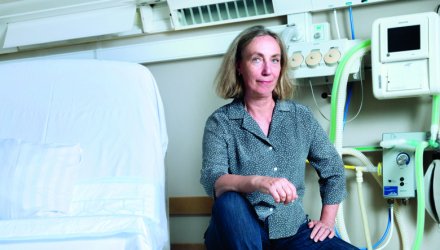
Focus on birth injuries
Most women will sustain some injury to the genital area when giving birth; however, for some of them the problems become permanent. Helena Lindgren is researching the role of the midwife and whether better methods could reduce the risk of vaginal tearing.

Popular pill with doubtful reputation
Contraceptive pills have been around for 60 years, and yet there is little research on how they impacts women’s quality of life. Some women get mood swings, others receive help reducing menstrual cramps.

How menstruation affects women's health
At best it’s only messy. At worst, it's a greatly limiting factor, where severe pain or heavy bleeding puts restrictions on your work and social life.

Safe abortion saves women’s lives
The Swedish Abortion Act came into force in 1974, giving women the right to decide for themselves whether they wanted to end a pregnancy in the first eighteen weeks. Since then, abortion procedures have become more effective, safe, accepted and accessible.
News in selection

Premenstrual symptoms linked to increased risk of cardiovascular disease
Women diagnosed with premenstrual symptoms have a slightly increased risk of developing cardiovascular disease later in life. This is shown by a new study from Karolinska Institutet published in Nature Cardiovascular Research.

Difficult childhood experiences may increase the risk of endometriosis
A new study from Karolinska Institutet involving over a million women links difficult childhood experiences to the risk of being diagnosed with endometriosis later in life. The study shows a link between childhood exposure to violence and a twofold increase in the risk of developing this gynaecological disease.

Perineal cut reduces the risk of serious birth injury
In first-time mothers requiring vacuum-assisted delivery, a lateral episiotomy (angled cut) in the tissue between the vaginal and anal opening more than halves the risk of obstetric anal sphincter injury, a severe form of perineal trauma between the vulva and anus. This according to a randomised clinical study.
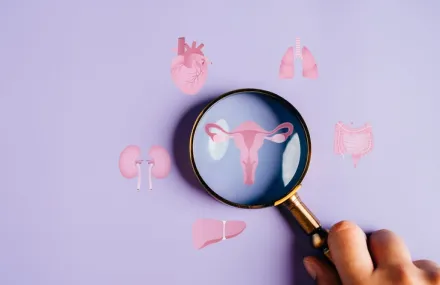
New test detects more cases of cervical cancer
Researchers have developed a simpler and more effective screening method for cervical cancer than the method used today. A comprehensive study published in Nature Medicine shows that the test detects significantly more cancers and precancerous stages.
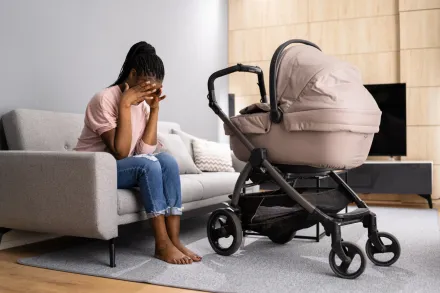
Bidirectional link between PMS and perinatal depression
Women with premenstrual syndrome (PMS) or premenstrual dysphoric disorder (PMDD) have a higher risk of perinatal depression. Conversely, women with perinatal depression have a higher risk of developing premenstrual disorders.

Telemedicine give vulnerable women access to safe medical abortions
A new study shows that medical abortion can be carried out both safely and effectively in low-resource settings by using telemedicine. The study is a collaboration between researchers at KI and the University of Cape Town, South Africa.
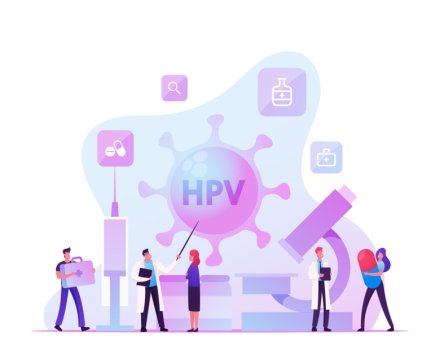
Vaccine protects against more HPV viruses than previously known
Two studies involving researchers at Karolinska Institutet, among others, show that common HPV vaccines provide lasting protection against more human papillomavirus (HPV) variants than the vaccines were developed for.
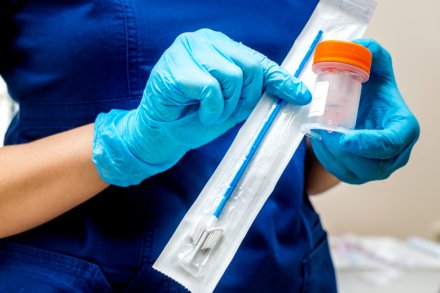
Cervical samples could reveal risk of breast and ovarian cancer
An international team of scientists, including form KI, has discovered a means of identifying the risk of breast and ovarian cancer by analysing cell samples from the cervix.

People with fibromyalgia have inflammation of the brain
Fibromyalgia is a pain syndrome that affects women more often than men. New research now shows that the nervous system's immune cells are activated in the brain in patients with fibromyalgia.

Oral contraceptives linked to reduced risk of RA
Taking oral contraceptives is associated with a lowered risk of developing rheumatoid arthritis (RA), finds an observational study by researchers at Karolinska Institutet.
Some of our researchers in this area

Researching how chemicals and drugs affect female fertility
The decision to have a child or not should belong to individuals, not to pollution in their environment, argues Pauliina Damdimopoulou, who studies how the chemicals in our environment affect the ovaries and the egg cells they contain.

Improved maternal health in low-recourse countries
Claudia Hanson’s research is focused on improving maternal and newborn health in low-resource areas in the world, especially in Sub-Saharan Africa.
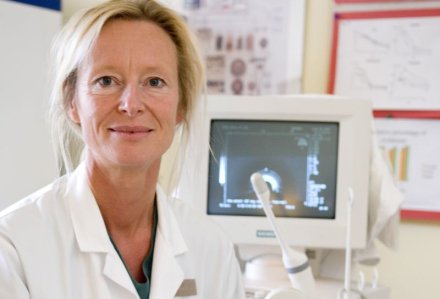
Medical abortions to save women's lives
Kristina Gemzell Danielsson is a Professor of Gynecology and Obstetrics and studies various aspects of reproductive health. One of her main interests is to provide medical abortions for women around the world – to save women's lives.

Impressed by the female memory
As a student in the 1980s, Agneta Herlitz became interested in the memory and differences between the sexes. Today she is a Professor of Geriatric Psychology at Karolinska Institutet.

Expanding the understanding of PCOS
Elisabet Stener-Victorin researches women with polycystic ovary syndrome (PCOS) and was one of the first to notice the disease’s connection with mental illness. Her aim is to understand the causes behind the syndrome and to contribute to better treatment.

How bariatric surgery affects pregnancy and delivery
The use of surgery for weight loss has increased dramatically in recent decades. Martin Neovius is studying the impact of bariatric surgery on pregnancy and delivery.

Strengthened midwifery increases women's access to care
Marie Klingberg Allvin’s work involves strengthening midwifery, often in low-resource countries, in order to give women access to better healthcare. She believes in the integration of research and education – something that is also included in her new professorship.
Keep searching
 Photo: iStockphoto
Photo: iStockphotoBreast cancer
Between 15 and 20 Swedish women receive the diagnosis of breast cancer every day, making this the most common cancer among women. Read more about how scientists are working to reduce the mortality rates for this disease.
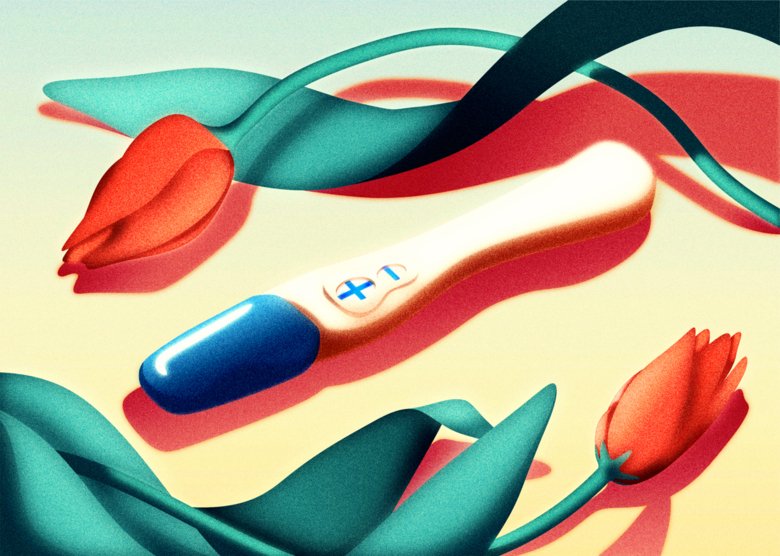 Photo: Peter Gehrman
Photo: Peter GehrmanInfertility
According to the WHO, almost 50 million couples worldwide are involuntarily childless while demand for assisted fertilisation is expected to grow as treatments have become both more effective and more widely accessible.
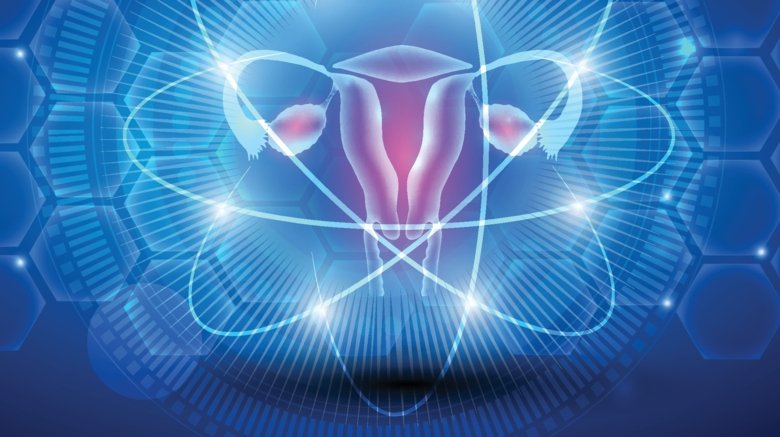 Photo: Getty Images
Photo: Getty ImagesBalance in the vaginal flora important for health
KI researcher Juan Du is studying how the correlation between bacteria and HPV impacts the development of cervical cancer.
